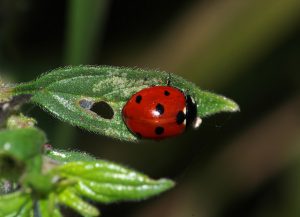Organic increases beneficial insect biodiversity without increasing pest insect diversity
 Photo caption: Neil Williamson
Photo caption: Neil Williamson
New research published in the journal Global Change Biology has found that organic farming benefits biodiversity. Researchers compiled data from studies from around the world to assess the effects of organic farming and high plant diversity in fields on the diversity of pollinators, beneficial insects that eat pest insects, insects that eat plants, and insects that help to break down dead plant matter. The found that overall, organic farms and fields with high levels of plant diversity increased both the abundance and the number of species of beneficial insects such as pollinators and pest predators. These beneficial effects of management on biodiversity also had the biggest impact at the local scale (i.e., the greatest increases in biodiversity were observed in fields as opposed to the surrounding landscape). The fact that increases in diversity were largest for beneficial insects suggests that by farming organically or by cultivating high plant diversity in fields, farmers can increase insects that provide beneficial services on the farm without increasing pest populations.


